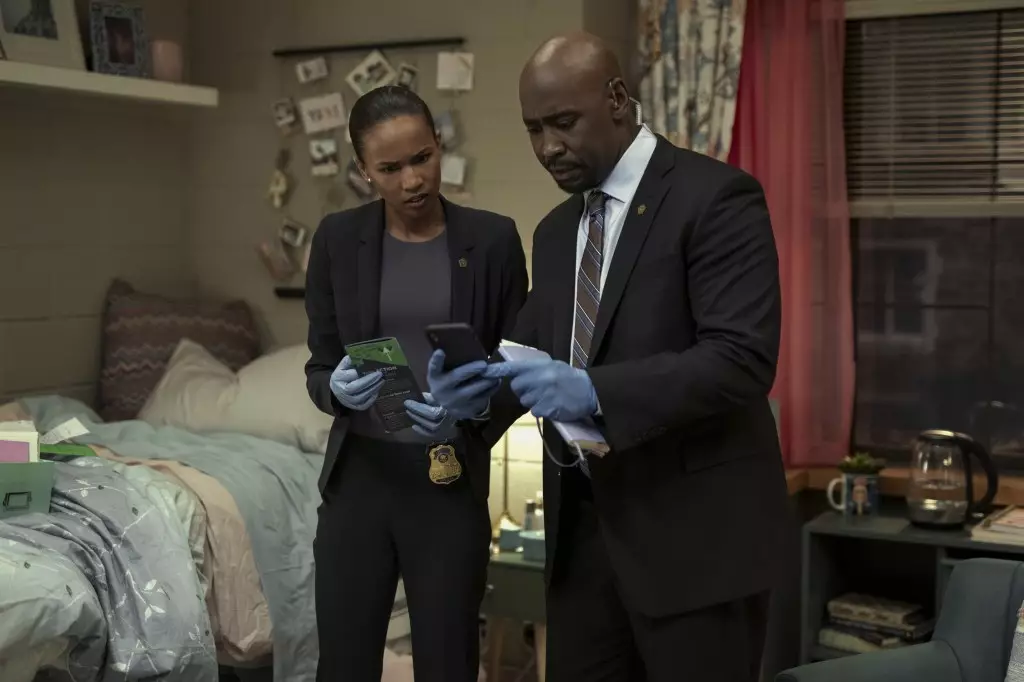The television landscape is rife with transformations, particularly in serialized narratives where character arcs often shape the storyline’s trajectory. One noteworthy instance is within Netflix’s action-drama series, *The Night Agent*, which has seen a deliberate shift in its cast following its first season. Season 2 initiated a significant departure from its predecessor, retaining only a select duo from its initial ensemble—Peter Sutherland, portrayed by Gabriel Basso, and Rose Larkin, played by Luciane Buchanan. This creative choice, removing nearly all Season 1 cast members, signaled a bold renunciation of previous character arcs, aiming instead for a fresh narrative canvas. Yet, the decision to bring back Chelsea Arrington, characteristically portrayed by Fola Evans-Akingbola, hints at a compelling reintegration of familiar faces in future storylines.
In the first season, Chelsea emerged as a significant character, intertwining her narrative with that of Peter and Rose while serving as a dedicated U.S. Secret Service agent responsible for the protection of the Vice President’s daughter. Her presence not only provided a secondary layer of intrigue but also served to expand the emotional and thematic scope of the series. However, with the arrival of Season 2, fans were left wondering about her whereabouts, as the show recently opted for a predominantly blank slate. The absence of Chelsea raised eyebrows and questions regarding narrative coherence and character development.
Interestingly, her brief resurface during the Season 2 finale, where she was seen safeguarding Governor Richard Hagan’s campaign, suggests strategic foresight from the showrunners. Such tactical use of character re-entry not only rejuvenates viewer investment but also lays groundwork for future storylines that could prove pivotal as the narrative expands into Season 3. The creators understand that iconic characters can act as anchors for audiences, establishing emotional stakes amid shifting plotlines.
In an insightful exchange with Deadline, *The Night Agent* creator and executive producer Shawn Ryan articulated the rationale behind Chelsea’s absence throughout Season 2, revealing a bittersweet behind-the-scenes truth. The concept of characters ebbing and flowing with the story’s needs is not novel; however, the poignant manner in which Ryan communicated this transition to Evans-Akingbola sheds light on the nuance and sensitivity required in the creative process. Ryan admitted, “It really pained me to have to call her between seasons one and two… the writers had been working for a few weeks and we’re gravitating towards stories that I don’t think we have a role for you in.”
This admission captures the essence of a show’s evolution; character arcs can grow seemingly independent of the actors who portray them. Yet, retaining some of the successful elements, particularly through cherished characters like Chelsea, offers a balanced approach to narrative development.
Despite the temporary disconnect, Ryan assures audiences that Chelsea’s narrative is anything but over. He eloquently stated, “As we got towards the end [of Season 2], we found this opportunity to have this little cameo for her that will serve as a platform,” a statement imbued with promise. The anticipated return is met with enthusiasm, as viewers are left to ponder whether Chelsea will resume a recurring role or become a series regular once more.
The strategic unveiling of Chelsea at a pivotal moment—against the backdrop of Hagan’s ascent towards the White House—poses intriguing questions about her future within the fabric of the show. Will Chelsea serve as a catalyst for conflict, or perhaps even an ally with a complex past? As the narrative gears up for another round, her presence can undeniably shift the dynamics that govern not just *The Night Agent*, but the viewing experience itself.
As *The Night Agent* embarks on its upcoming season, the implications of character dynamics and character returns cultivate an air of anticipation. With Chelsea Arrington’s cameo serving as a precursor for her deeper involvement, it paints a larger narrative picture poised to explore varying dimensions of loyalty, conflict, and power in a political landscape. This transforms the show from merely a series of action-packed sequences into a rich tapestry of interwoven human experiences, promising audiences a rewarding viewing journey ahead.

